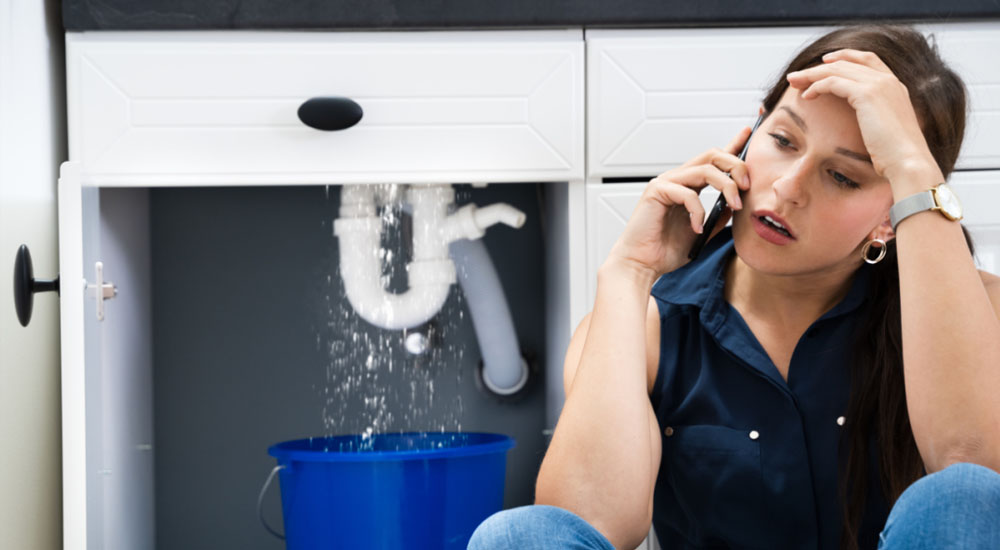Hidden plumbing leaks can be a homeowner’s worst nightmare. Not only can they cause extensive damage to your property, but they can also lead to sky-high water bills. Learning how to detect a hidden plumbing leak early can save you a lot of trouble and expense in the long run. This guide will provide you with the knowledge and tools you need to become a leak detection expert in your own home.
Signs You May Have a Hidden Leak
How to detect a hidden plumbing leak often starts with recognizing the subtle signs. While a gushing pipe is obvious, hidden leaks are more insidious. Keep an eye out for these red flags:
- Unexplained Increase in Water Bills: If your water usage hasn’t changed but your bill has spiked, a leak may be the culprit.
- Sounds of Running Water: Do you hear the sound of running water even when all faucets are off? This could indicate a leak.
- Musty Odors: A persistent damp smell, especially in enclosed spaces like under sinks, can be a sign of hidden moisture.
- Mold or Mildew Growth: Unexpected mold or mildew, particularly in areas not typically exposed to moisture, can signal a leak.
- Warped or Discolored Walls/Flooring: Water damage often manifests as warping, staining, or bubbling on walls, ceilings, or floors.
DIY Methods for Detecting Hidden Leaks
1. The Water Meter Test:
- Turn off all water sources in your home (faucets, appliances, etc.).
- Locate your water meter and record the reading.
- Wait for at least 30 minutes, ensuring no water is used during this time.
- Check the meter again. If the reading has changed, you have a leak.
2. Inspecting Visible Plumbing:
- Check Under Sinks: Look for drips, signs of corrosion, or water stains on pipes and fittings under sinks.
- Examine Toilet Tanks and Bowls: Add a few drops of food coloring to the toilet tank. If the color appears in the bowl without flushing, you have a leak.
- Inspect Appliances: Check washing machine hoses for bulges, cracks, or leaks. Examine connections to your dishwasher and refrigerator for signs of moisture.
3. Investigating Wet Areas:
- Probe Walls and Floors: Gently press on walls and floors in areas where you suspect a leak. Soft spots or dampness can indicate water damage.
- Use a Moisture Meter: A moisture meter can help you pinpoint areas of hidden moisture within walls and floors.
When to Call a Professional
While DIY methods can be helpful, sometimes you need the expertise of a plumber. Consider calling a professional if:
- You’ve tried DIY methods but can’t locate the leak.
- The leak is in a hard-to-reach area.
- You suspect a slab leak (leak beneath the foundation).
- You need assistance with leak repair.
Advanced Leak Detection Technology
Plumbers have access to advanced technology that can pinpoint hidden leaks with greater accuracy:
- Acoustic Leak Detection: This method uses sensitive listening devices to detect the sound of water escaping from pipes, even through walls and floors.
- Thermal Imaging: Infrared cameras can detect temperature differences caused by leaks, revealing hidden moisture.
- Video Camera Inspection: Small cameras can be inserted into pipes to visually inspect for leaks and damage.
Preventing Future Leaks
Prevention is always better than cure. Here are some tips to minimize the risk of future leaks:
- Regularly Inspect Your Plumbing: Make it a habit to visually check your plumbing for signs of wear and tear.
- Maintain Your Water Heater: Flush your water heater annually to prevent sediment buildup, which can contribute to leaks.
- Insulate Pipes in Cold Weather: Exposed pipes are vulnerable to freezing and bursting. Insulate them to prevent damage.
- Know the Location of Your Main Water Shut-Off Valve: In case of a major leak, you’ll need to quickly shut off the water supply to your home.
Conclusion
Learning how to detect a hidden plumbing leak is an essential skill for every homeowner. By being vigilant and proactive, you can protect your home from costly water damage and keep your water bills in check. Remember, early detection is key to minimizing the impact of leaks. Don’t hesitate to call a professional plumber if you need assistance with leak detection or repair.

